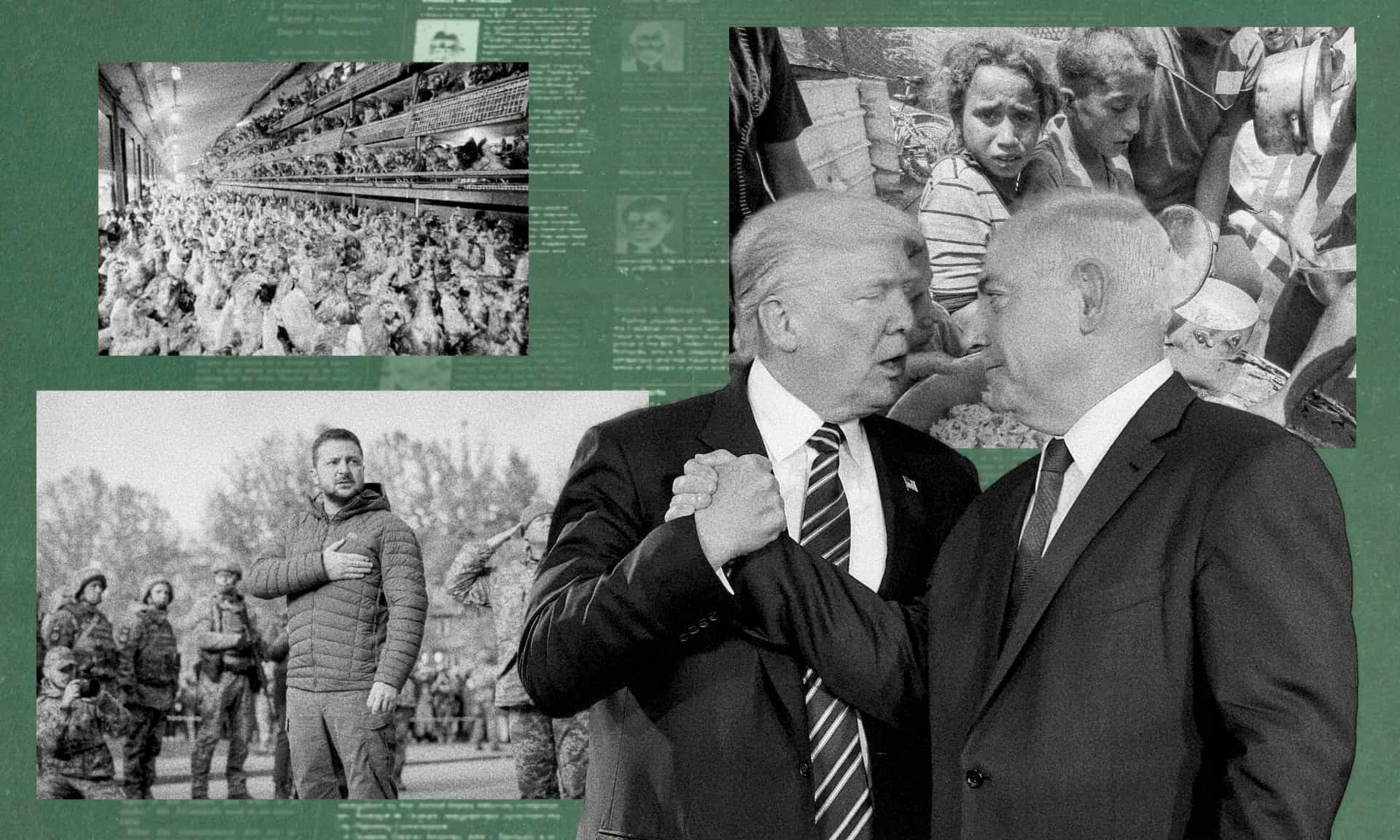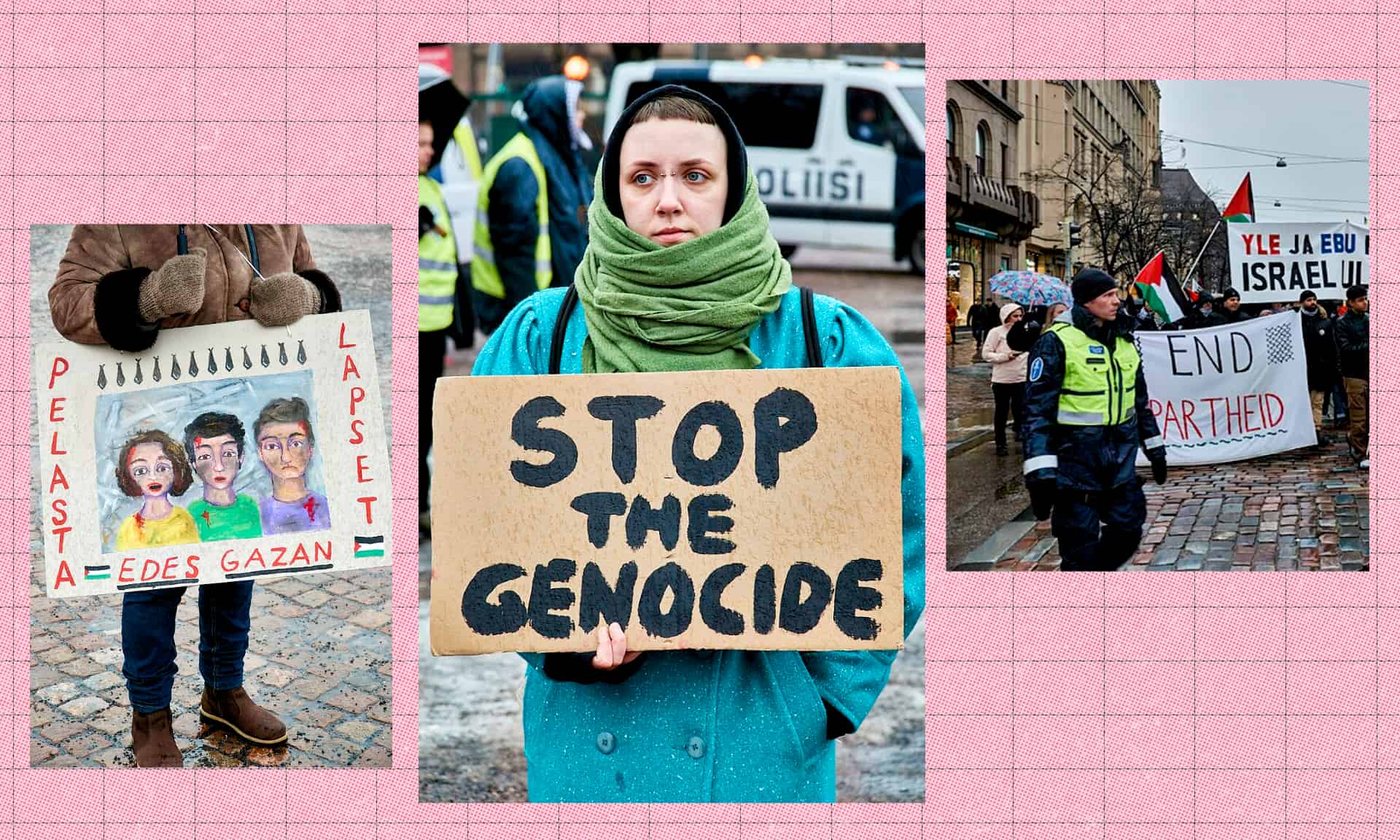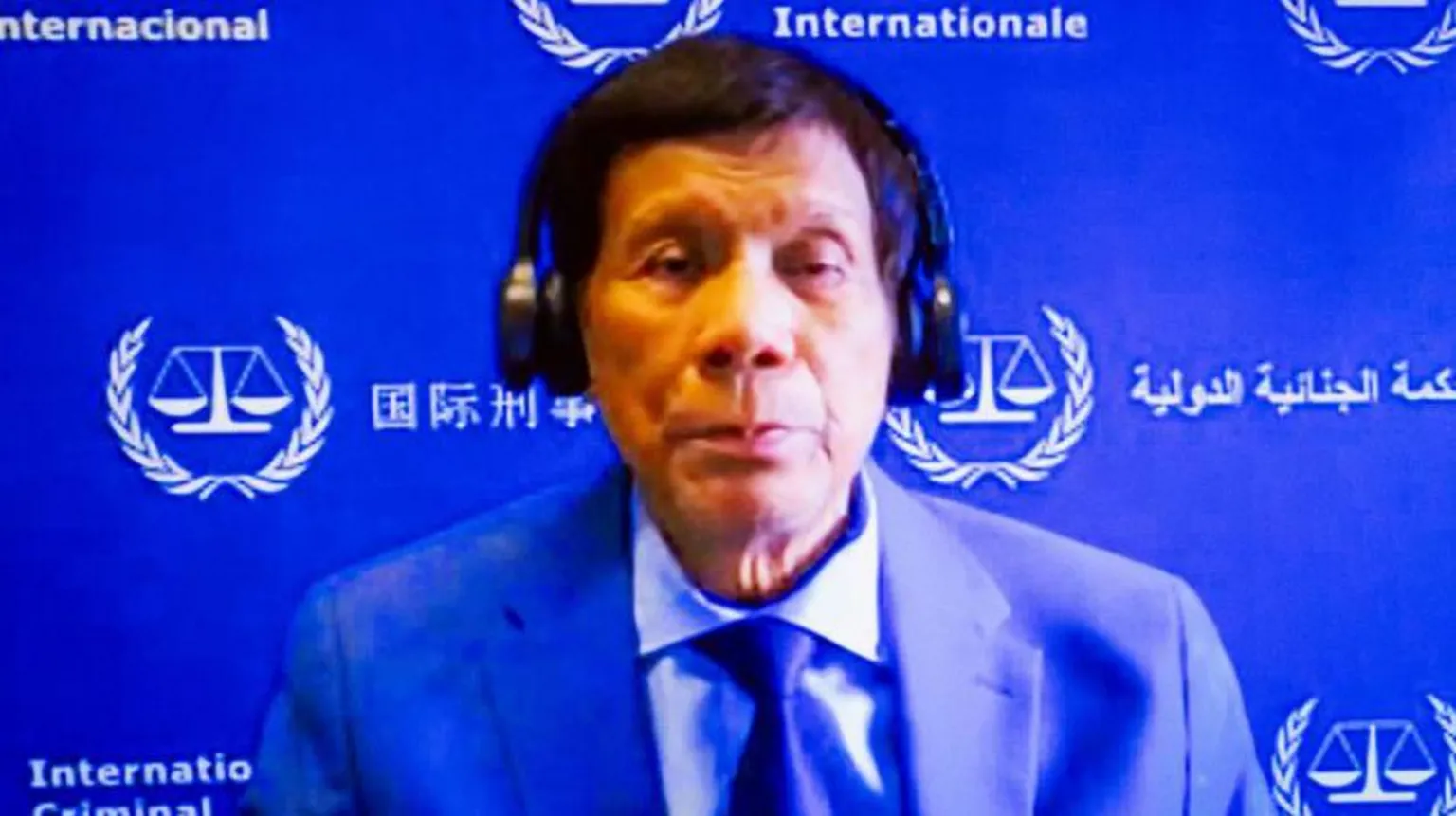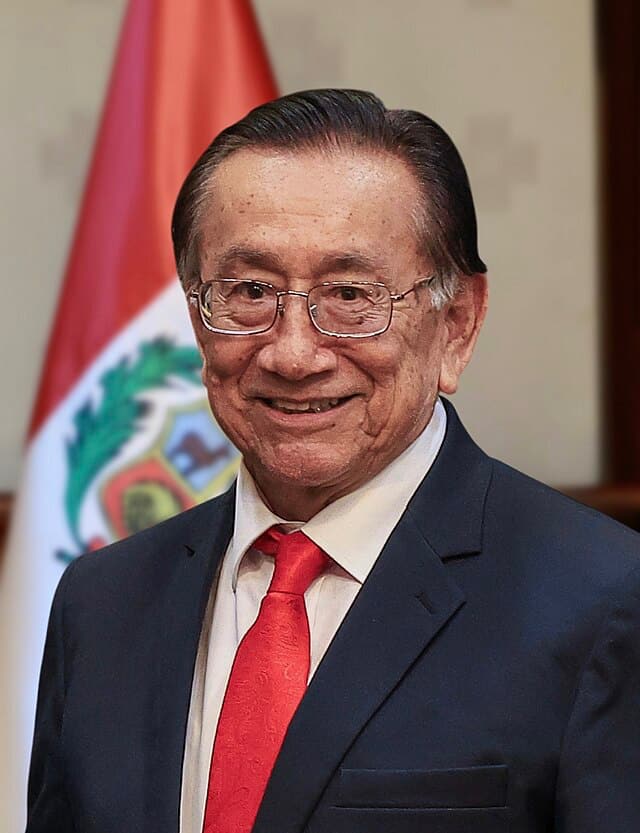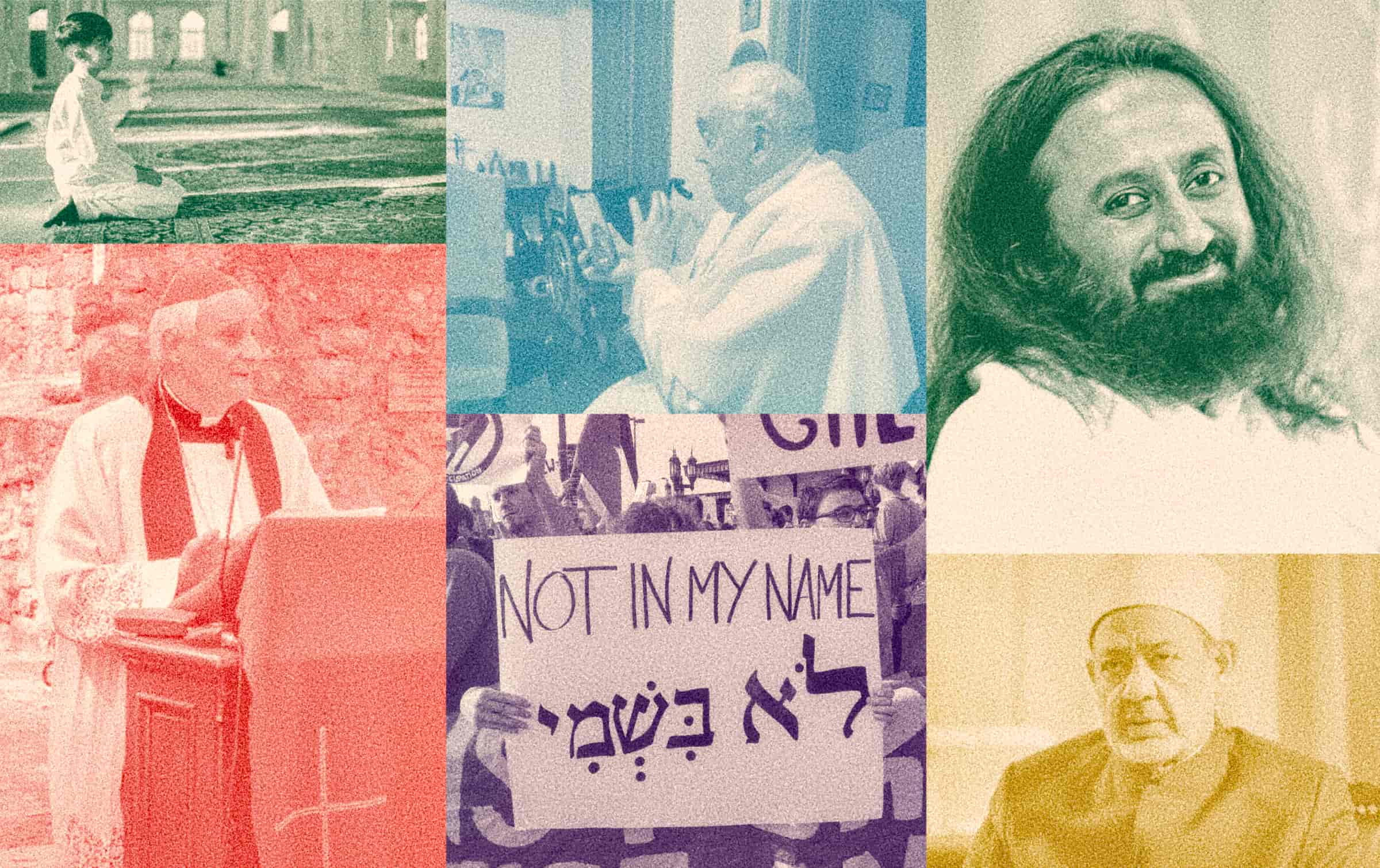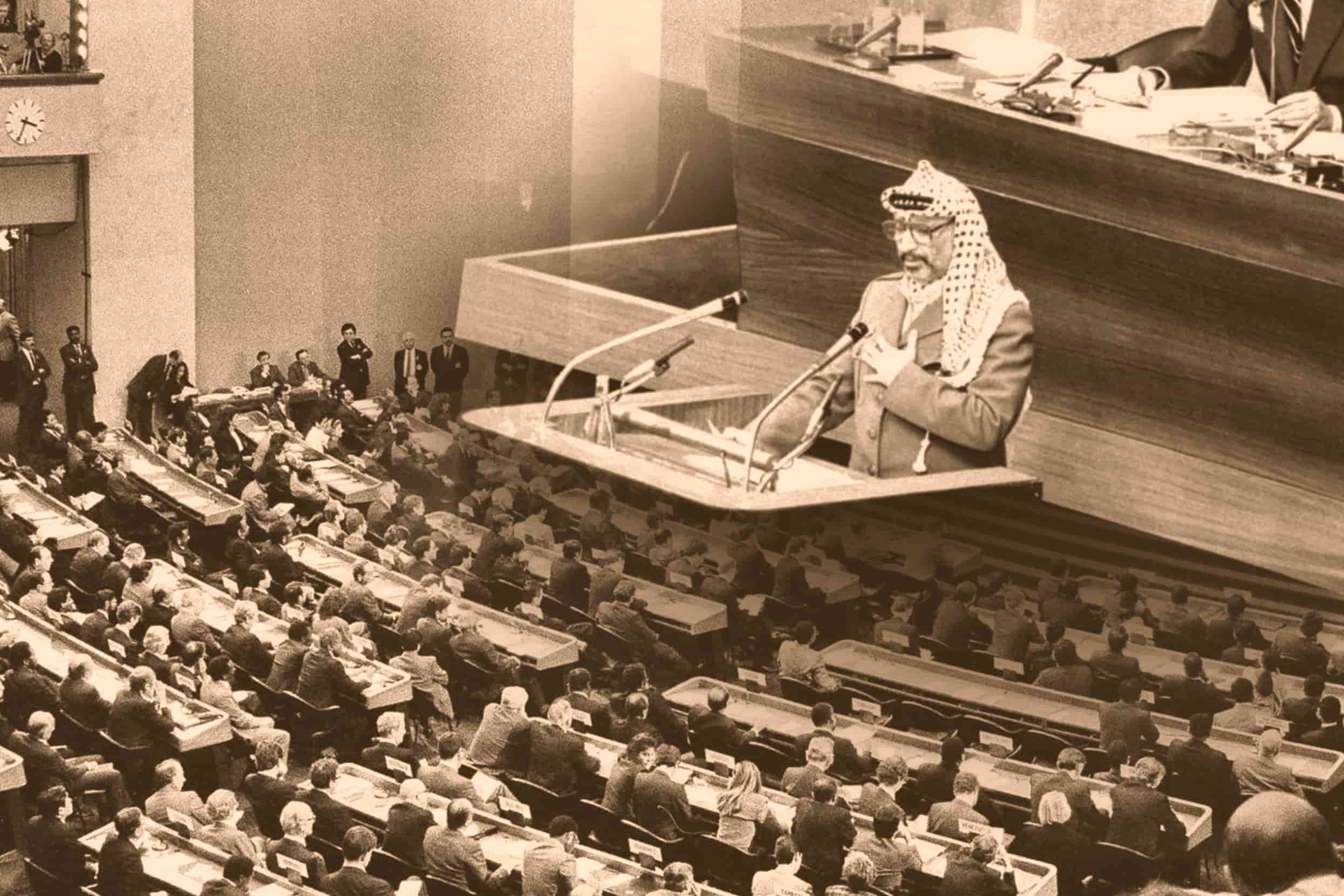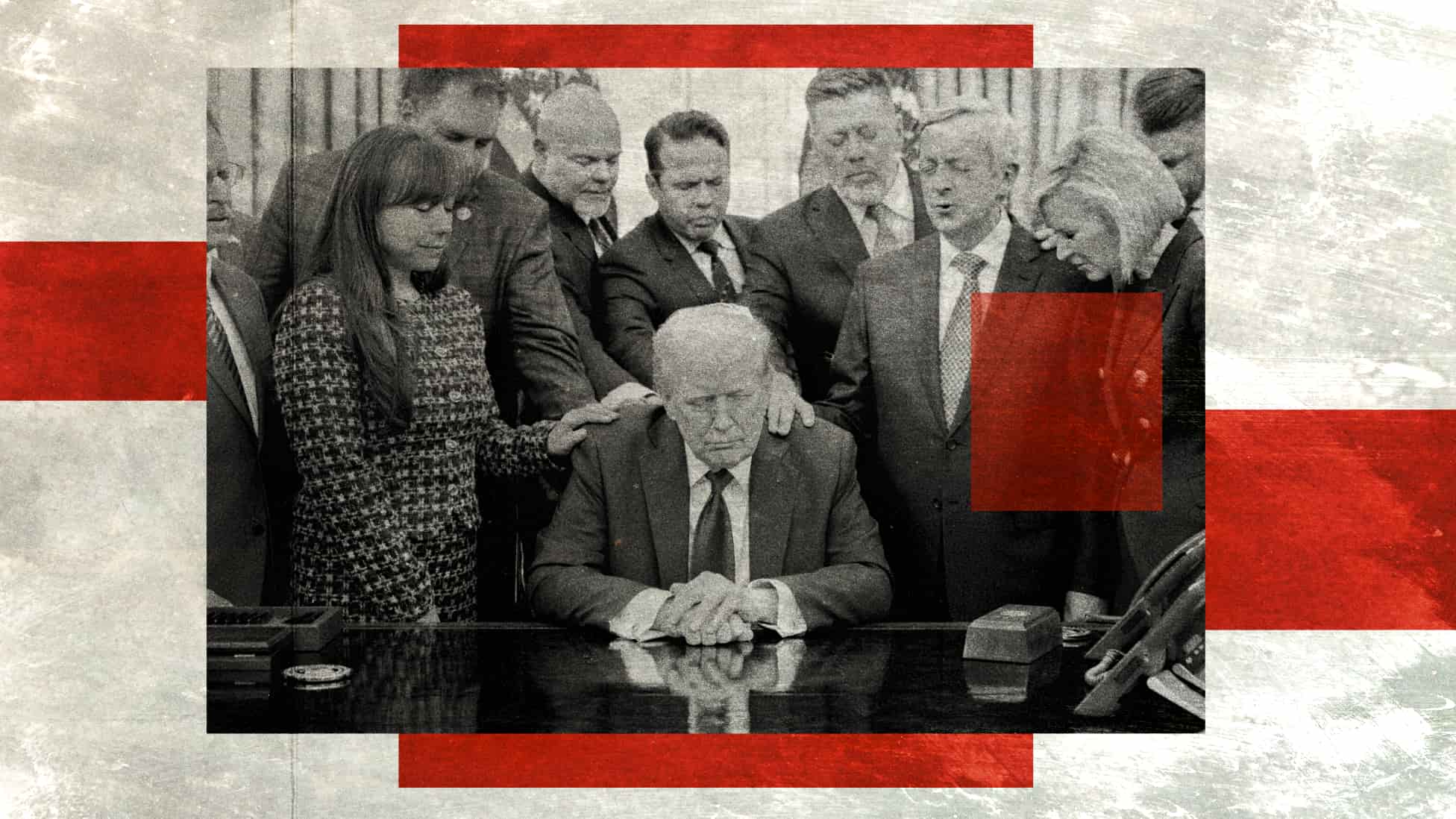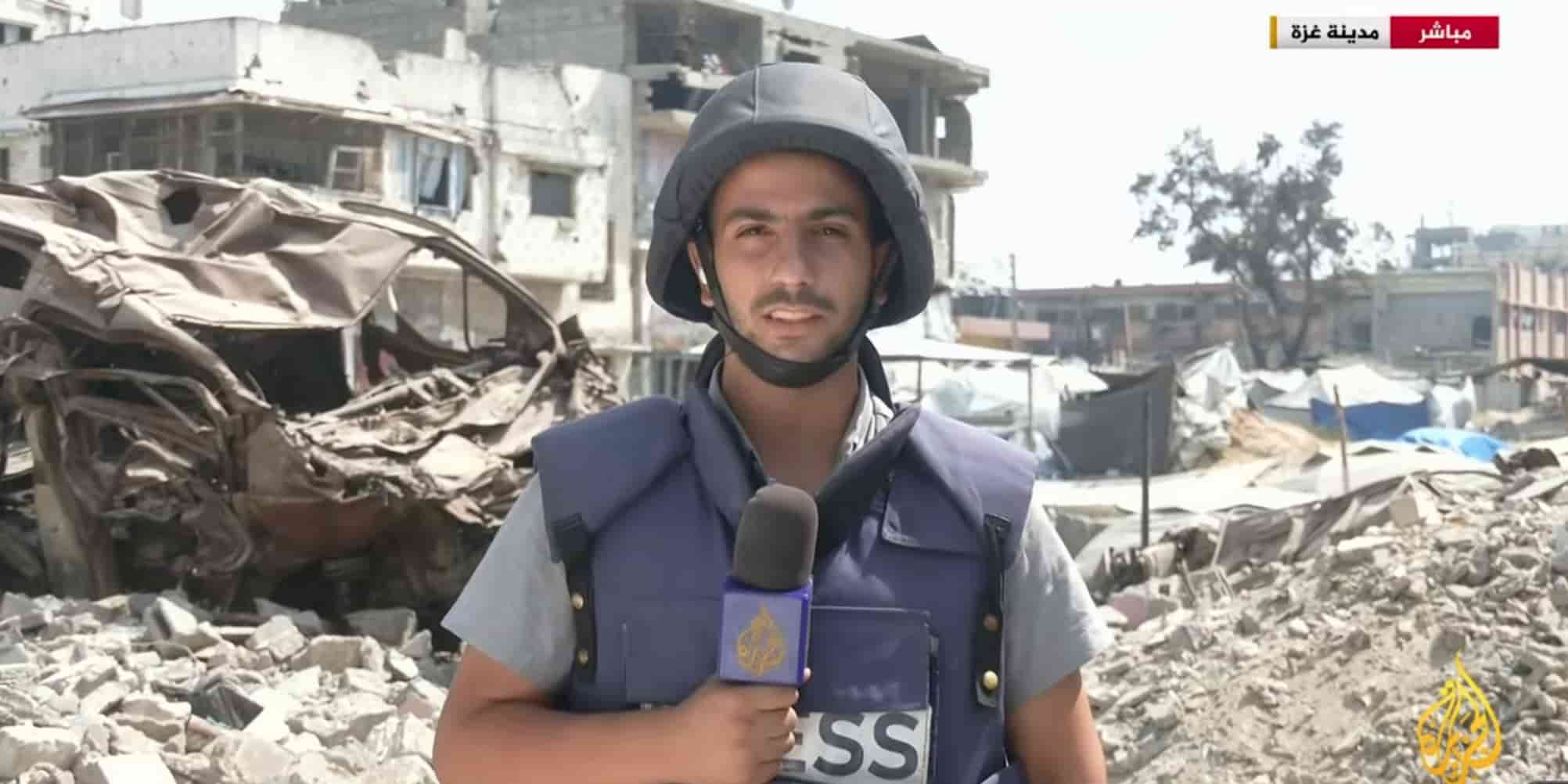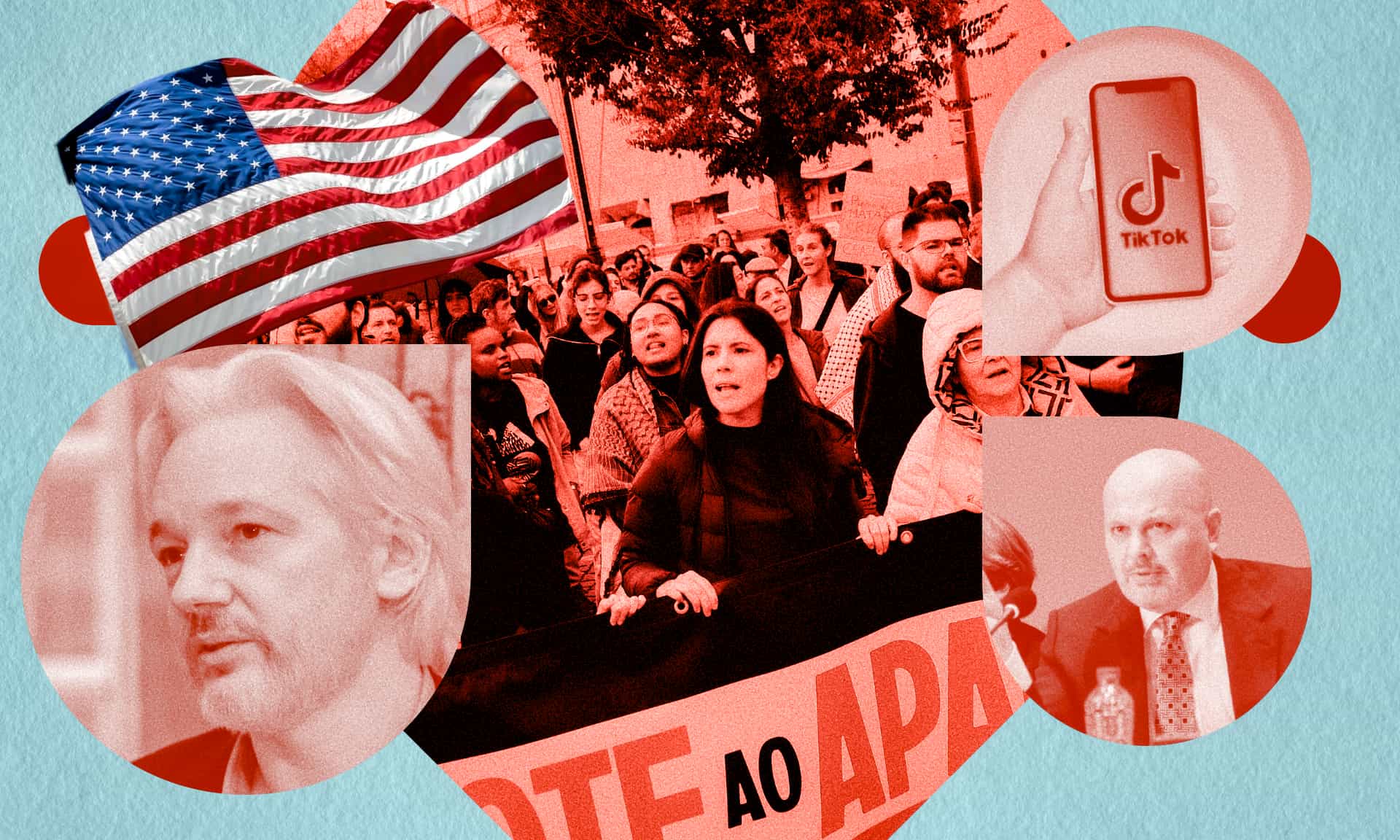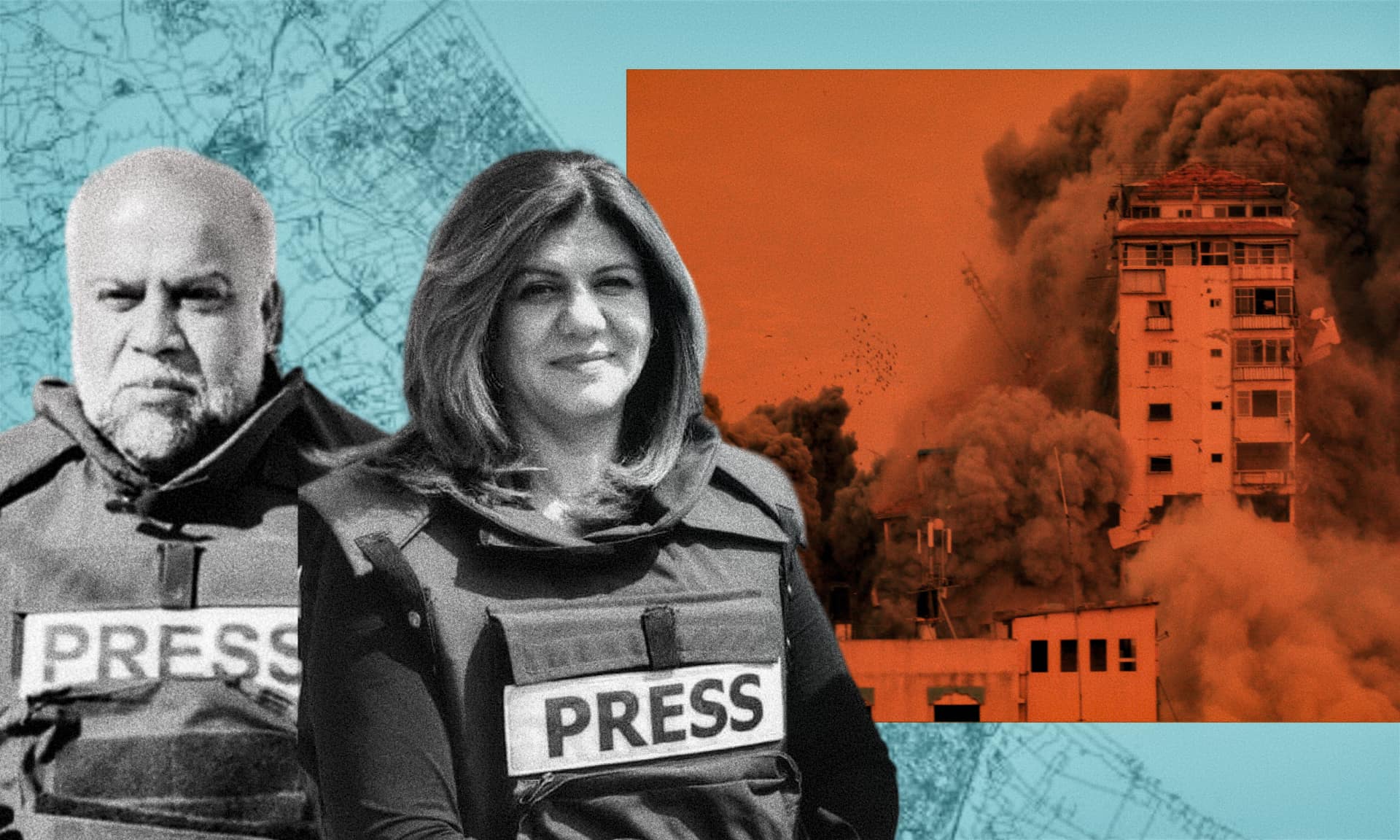‘Maintaining our inner peace’ on Gaza is complicity. Here's the psychological cost of our silence
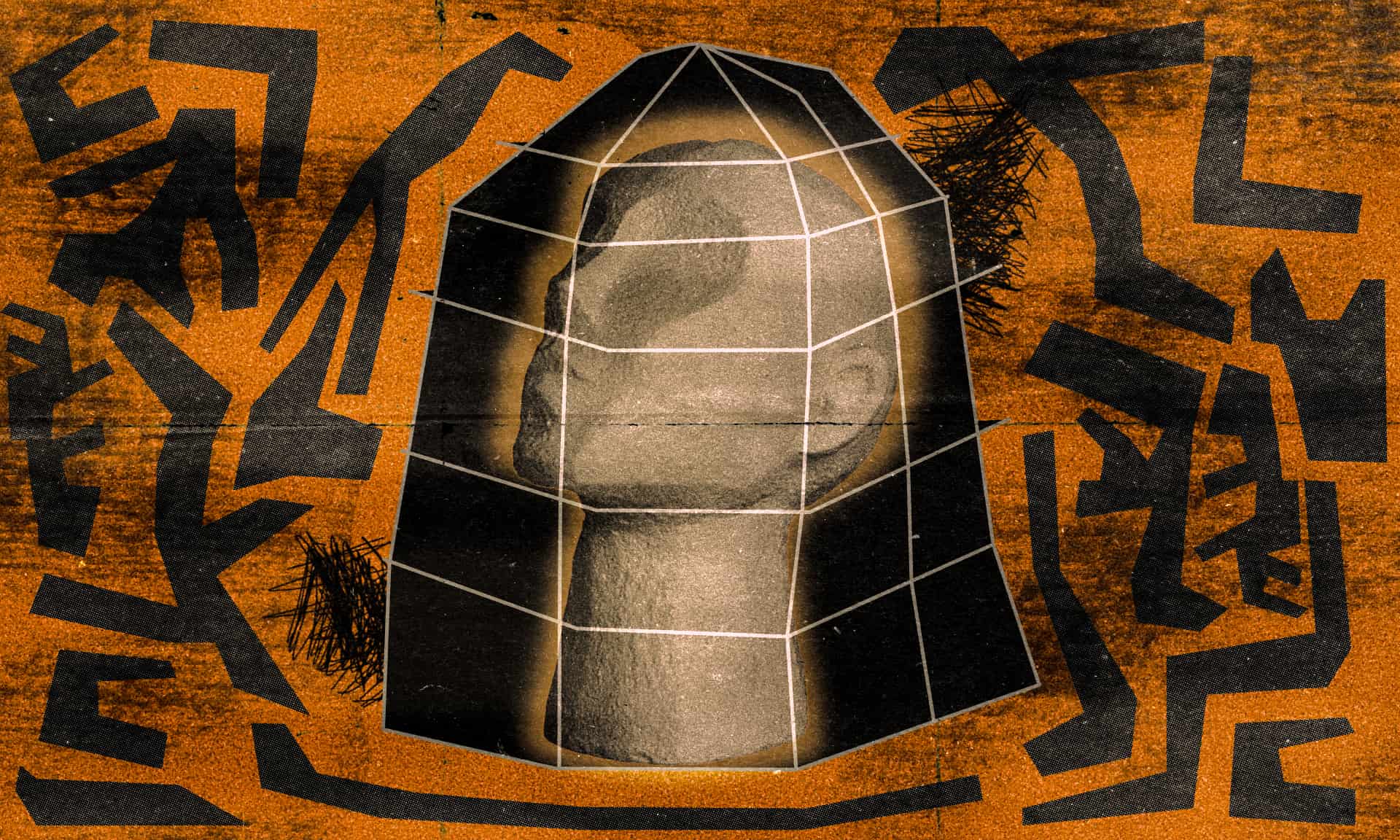
I recall a conversation I had at university in one of my classes where the topic shifted to the devastating genocide occurring in Gaza. Immediately I noticed some peers sink into their seats. As if a high-beam light was being shined on a repressed, analogously very dark, corner of their mind.
I found this odd, but then understood this might actually be the case; in that moment those individuals chose to literally ‘take a backseat’ and remain unchallenged, unstimulated and uninformed. When asked directly of their opinions and feelings on this tragic reality, they were only able to muster the response “I don’t know enough”. I desperately hoped that they at least did know killing (now) almost 18,500 children is unjustifiable and abhorrent.
I mention this story to highlight the mechanised response that so many fall back on with ease to rid themselves of any moral, intellectual and political liability. This is the enactment of wilful ignorance or put simply, actively choosing not to know.
Is the choice to be ignorant an escape? Does one feel belittled, pressured, even dominated due to their own lack of knowledge or awareness? Or does speaking up feel like a commitment that is avoided through ambiguity?
Certainly, if you are someone who is not prone to engaging in critical ponderance, then a conversation requiring a peering out, onto the dismantling and fragmented global political economy, can feel daunting. As we break past the glass panels separating us from approaching and reshaping what we can see, we tread ever-so carefully over the shattered glass around us; naively hoping that reformation and progress can be achieved without risk, cuts and sacrifice.
However, this endeavour is essential. To continuously learn, evolve and survive as a collective civilisation requires a steady flow of information that is circulated with transparency. ‘We are our decisions’.
Effective decision-making requires full information which in turn leads to positive change. Therefore, a lack of information exchange and acknowledgment only prohibits society’s progress. You would be walking into the courtroom blindfolded; the verdict may be yours to give, but you have no grounds to judge.
Facts and reality deeply affects our wellbeing, but it also reflects our moral character…
I can sympathise with feeling overwhelmed and overloaded by all the news of current events and disasters unfolding around the world. Often, it is too daunting to focus on the oppression of a people hundreds of miles away, the degradation of our planet or the cultural and racial intolerance at home. As the doomsday clock ticks further ahead to now only 89 seconds to midnight, I stare at the time on my phone to recall what meeting or appointment I had to attend next. I empathise with those who decide to not know in order to maintain their inner peace but…
I do not support this approach. Maintaining your inner peace in such a way will inevitably maintain the control of the elites: injustice and exploitation is accepted (so long as it remains outside your illusion of peace). I’m sure we have all encountered a persistent wasp whizzing around us. Some will stand still and silent, hoping the wasp is fooled and leaves to cause unrest elsewhere. Unfortunately, injustice is no ordinary wasp: it swells larger and more destructive the longer it is allowed to harass us. How we engage with truth, facts and reality deeply affects our overall wellbeing, but it also reflects our moral character.
Deflection, distraction, deflation and disorientation
Through my own participation and observations of debates, I have found some common methods for how ignorance is deployed. Highlighting these should make us more attentive in differentiating wilful ignorance from blissful ignorance.
Firstly, there is deflection: you avoid answering by asking your opponent for something they can’t give you as a prerequisite for answering their question to you. For example, many far right politicians will refuse to condemn Israel for the starvation and genocide of the Palestinian people.
US Senator Tom Cotton when recently asked about the US’ continued support for Israel, dismissed the genocide as lies and even accused the UN of fabricating claims about Palestinians being killed at aid sites. His absurdity even stretched to dismissing the Integrated Food Security Phase Classification (IPC), the leading UN-backed body for assessing food insecurity and famine risk, as “left-wing clowns who are antisemites”. Suddenly, the conversation stalls and his claim of ignorance remains intact.
At this point, Mr Cotton seems to be wanting an admission from the IDF and Netanyahu themselves of their ruthless war crimes which is no less absurd than expecting a stone to confess.
Distraction is another technique where an emotion-invoking appeal is made to steer away from the main point of conversation. When environmental policies, for example, are discussed, people often evaluate their personal social and economic consequences rather than focusing on the much-needed restoration or protection of the environment. Trump’s “drill, baby, drill” slogan summarises this perfectly. The fact that an environmental issue is termed by solely monetary considerations is already a serious indication of the failings of capitalism.
The shared responsibility of stewardship of this planet is displaced by individual desires and selfish perspectives. People are always entitled to check how a policy will affect their livelihood and standard of living, but this divided approach will never result in collective action.
Deflation is used to raise the bar and elevate the discussion to an even more complex arena. How many times has a discussion on racial inequality in policing, justice systems or economy been dragged into a history lesson on colonialism. Although this is also a valuable discourse and indeed, we have much to learn from our past, notice how one can rid themselves of criticising a contemporary, local issue by stretching the discussion across continents and centuries. The critic no longer has to face the uncomfortable reality of present injustice. Whilst they drag your attention away, you must remain anchored to the central point of discussion for a meaningful outcome.
Finally, the mask of ignorance can be fastened with laces of disorientation. This tactic shifts the focus from large, systemic actors to individuals, making them feel responsible for a problem they have little power to solve. Within the framing of an intellectual setting, this is disingenuous and inappropriate.
One relevant example is climate change. Too often the focus falls on individuals with phrases such as “you should not drive a car” or “you should cycle”, while governments and corporations escape scrutiny for their deliberate neglect of environmental damage in the pursuit of profit. Even the notion of a “carbon footprint” was coined by big oil to shift responsibility onto the public and deflect blame from its own greed.
The comfort of complicity and the fear of knowing
I hope it is now clear that wilful ignorance is not passive; it is strategic. Your choice, not disposition, of it must be investigated and amended.
Ignorance thrives when people fear the cost of knowing or lack the motivation to act on what they know. This can be self-serving: a situation where a decision maker’s interest may conflict with someone else’s. This relates back to the concept of maintaining one’s ‘inner peace’. I then ask: is one really maintaining peace when that silence involves complicity?
A meta-analysis of studies by the American Psychological Association on the factors behind wilful ignorance concluded that individuals who understand the consequences of their actions tend to behave more altruistically. From this they then extrapolated that choosing not to know allows you to be selfish or unaltruistic. When consequences are unknown it is much easier to wash your hands of any guilt, blame or malice and excuse yourself from the damage caused by a decision or its outcome.
People avoid knowledge to maintain a positive self-image and escape moral obligation. We must self-reflect at this point: to prioritise an image – a malleable construct hammered by perception – over a harsh, fixed reality, is unjustifiable.
As Shakespeare wrote, “all that glitters is not gold”. Appearance should not be used to shield from what is.
When actions are observable, people fear judgement. Here ignorance is used again as a protective measure. Social norms and tribal thinking influence the likelihood of you choosing to be wilfully ignorant. When seeking information is the norm in a community, you are more inclined to do so.
Additionally, the communal level of transparency or avoidance is not a measurable variable and instead set through daily behavioural cues, conversations and public expressions. It’s like sitting at the dinner table. Even if you’re unsure whether to speak or stay quiet, the table’s mood shapes how much you share or hold back.
To elaborate, wilful ignorance is not just about the contents of avoided information, but also the social cost of asking. For instance, asking sensitive questions has been historically discouraged which can then act as a cognitive barrier to information-seeking. However, no change can occur if such uncomfortable costs are not incurred. Change is uncomfortable because it is a step towards a more uncertain future. Nevertheless, with the current catastrophic state of world affairs, we are already accustomed to uncertainty. Every occurrence of conflict, trade war, failing ecosystem, natural disaster, or surge of authoritarian governance is a symptom of an expansive capitalist cancer jeopardising our future.
Beyond local social practices, social media and online interactions have created an all-encompassing virtual community, which can cause one to feel as if one’s viewpoints are highly visible and therefore easily scrutable. The fear of being excluded or of appearing different is often stronger than the drive to do what is right.
Furthermore, in these overly-socialised virtual communities there is no lack of narratives, opinions and information. In fact, too much information (and misinformation) is a danger too. Yet, this should all the more solicit a thoroughly rigorous investigation of sources, rather than a shying away from them. You must look and learn to know and filter what is to be trusted and mistrusted, believed and rejected, amplified and nullified.
Under an ‘information overload’ where there is too much to process, people can find it easier to opt for blinders and to tunnel vision their outlook. This is understandable but ultimately cowardice.
The most destructive effect of this practice is the fostering of an internet eco-chamber: your online feed or platform quickly curates in a fashion that only appeases your views and rarely challenges them. Your thinking becomes enclosed and circular. This is part a marketing ploy to keep users engaged with gadgets and online interfaces, but also a much more sinister political tactic used by the highest or most influential bidder to keep the masses informed of particular agendas.
At the time of writing, there are many reports of a six-month, $45 million contract between the Israeli government and Google whom Netanyahu has described as a “key entity” in supporting his government’s public relations strategy. I have since seen bewildered online users share flag-up ads by the Israeli government on platforms such as YouTube which state: “there is food in Gaza. Any other claim is a lie”.
From citizen to consumer
I want to separately dissect the neoliberal ideology or system as an overriding precursor to today’s widespread wilful ignorance. Neoliberal economic policies put market logic at the forefront through privatisation, financialisaton and deregulation. More importantly, this ran parallel with a strong emphasis on each citizen to see themselves as self-reliant, economic agents.
Each of us was to ensure our own survival; take our own risks, self-invest and remove expectations of social welfare from political authorities or any other collective organisations.
There was an almost complete tipping of the scale in spending on essentials, services, insurance and provisions from the public budget to private pockets. A culture of consumerism was ushered in whereby each choice of consumption and investment is supposed to be reflective of the individual’s morals, interests and preferences.
As Margaret Thatcher, former UK Prime Minister and the architect of Britain’s austerity policy, once proclaimed, she came to office to change Britain “from a give-it-to-me to a do-it-yourself nation”. Most strikingly she said, “economics are the method; the object is to change the heart and the soul”.
It is this very intertwining of market logics and monetary considerations with morality and ethics that caused a blurring of identities and responsibilities. Community has been disintegrated through a framing of freedom and rationality for the individual. This I argue is the pivotal point of moral demise. How can one be expected to worry or empathise for others, go on strike, protest, speak out or enact any form of activism or revolution, if the system they exist within punishes any such dissent.
Again, referring to the genocide of Palestinians (as this is today’s most prevalent crisis) countless people have been fired on grounds of “antisemitism” for their public opposition to Israel’s actions. Anti-Zionism and antisemitism have been conveniently meshed to give Netanyahu and his radical regime a backdoor escape.
In the US, Secretary of State Marco Rubio has been swinging his sword, cutting away voices rather than arguments. Rubio’s revoking of Rümeysa Öztürk’s visa and the arrest of Mahmoud Khalil are key examples of this. I wholeheartedly acknowledge the risk some face when choosing to speak up and make others aware. Should you decry the wars burning wheat fields and the poisons polluting seas, or stay silent, so bread and fish still reach your table?
It is of utmost importance for us to not only call out equippers of wilful ignorance, but also to expose their enablers and the conditions that cemented these choices. I have discussed emotional, societal and practical factors behind why one chooses to live in a false reality. Now I demand we take a step further and inquire how the socio-political frameworks that host these factors have been allowed to thrive for so long.
The mundane is not invaluable. It is in fact very necessary. We can’t all be relentless champions for every cause. An athlete will train in a reserved manner to delay the actualisation of their efforts for the main stage. Here their performance is pivotal and most relied upon. Similarly, I implore everyone to train.
Train your thoughts, your way(s) of thinking, your way of understanding. Augment your intellectual capacity to a point where, by being sincerely present in an interaction, you input raw emotion and attention. Espouse a feeling or an idea and challenge while allowing the individual conversing with you to rationalise their own beliefs too.
No one can know everything, but everybody can know something; and acting on that something can make a huge difference.
- Sabih Abdul is a graduate in Economics and International Relations and is completing a master’s in Development Economics. He explores the socio-economic rationale behind key global events, aiming to bridge IR theory with real-world dynamics while offering economic insight where relevant.


